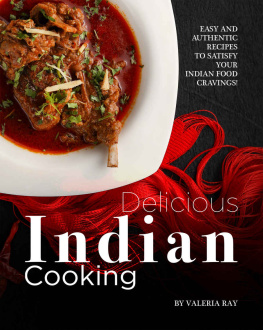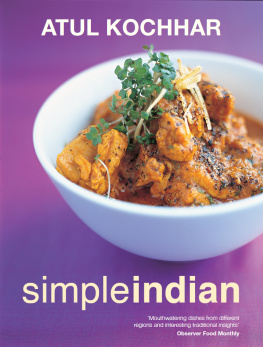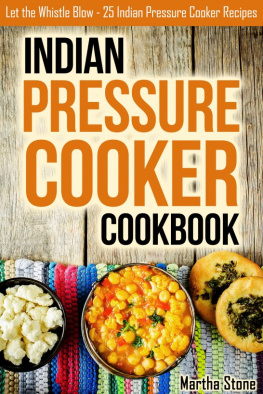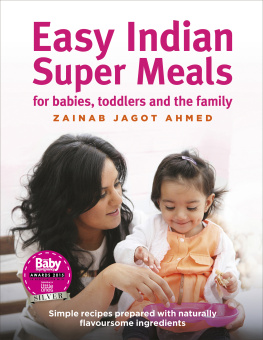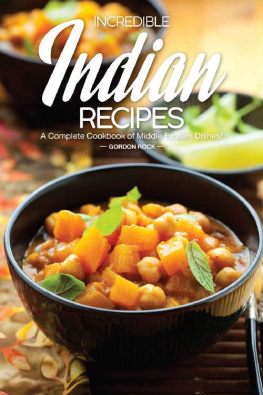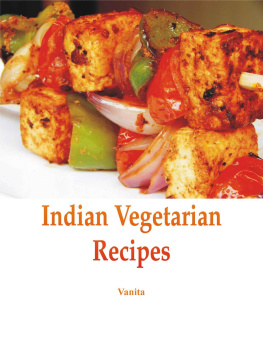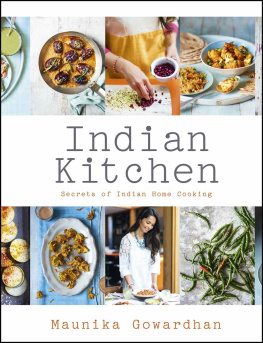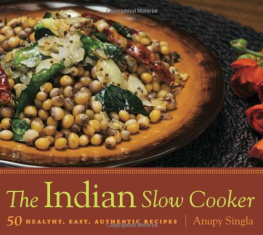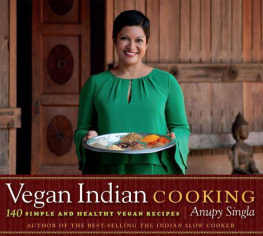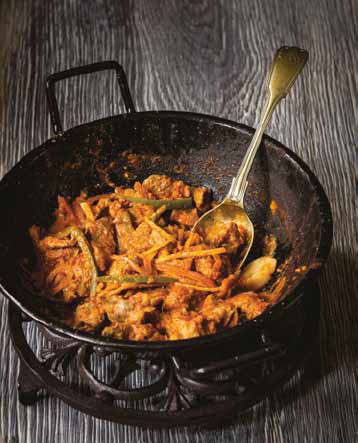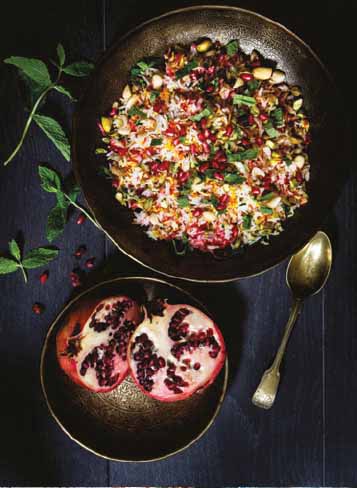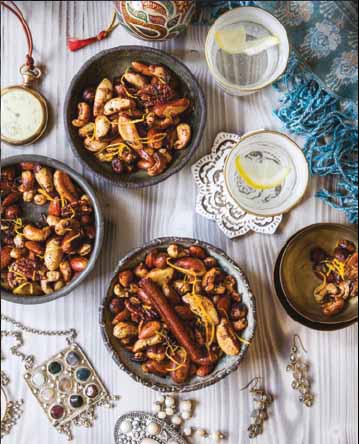Cooking Like Mummyji

COOKING LIKE MUMMYJI
REAL INDIAN FOOD FROM THE FAMILY HOME
COOKING LIKE MUMMYJI
REAL INDIAN FOOD FROM THE FAMILY HOME
VICKY BHOGAL
F OREWORD BY A TUL K OCHHAR
GRUB STREET LONDON
DEDICATION
This new edition is dedicated to what has become known as the CLM Family: all the incredibly loyal supporters of Cooking Like Mummyji round the globe since it was first published in 2003 and have urged for it to be republished, you are the beating pulse of the books journey.
Thank you, deeply and sincerely, for taking the time out over the years to write to me, from all over the world, crossing geographic, age, gender and ethnic boundaries. It shows the amazing role that food plays in our lives. No matter who we are or where we are, it brings people together, gives us comfort, makes us feel at home. Reading your words has meant everything to me. You have so warmly adopted this book into your kitchens, lives and hearts, so I feel this is now YOUR book.
To my parents, who, through their sacrifices, have taught me the sheer necessity of trying to fulfill all your dreams and have given me the courage to reach for the stars. Thank you to them, and my siblings, for absolutely everything. And in loving memory of my grandparents, the four pillars who created the love of food and the very world within these pages that I was born into
THANK YOU
To that which creates everything, I simply offer my humble thanks. Thank you to my ancestors whose talents and recipes have found their way to me through the trickle of time. My family, you are everything and keep me hopeful and laughing. Philip Jones, editor of The Bookseller, for recommending Grub Street. Anne Dolamore, thank you beyond words for becoming CLMs new Mummyji and giving this book the gift of life by publishing. Marion Guerineau for your beautiful designs, and all at the amazing Grub Street team. Rebecca Williams for lending me the exquisite crockery that I fell in love with, you are so talented. Regula Ysewijn for capturing the essence of the book with her ever magical photography. Kathy Kordalis for her stunning styling and such great care. Lorna Acikalin and Mark Payton for their incredible encouragement, hard work and artistry over the years, I trust and love you like family and could not have persevered without you. Atul Kochhar, the day I met you and you said you knew of and loved CLM was like I had died and gone to heaven, my deepest thanks for your support, my food hero. To Susanna Clarke who picked up the initial letter from a 24 year old with a dream. To the kind Indian man, who gifted me his dear elephant good luck charm for the book. To darling Piers for inspiring me every day, your stellar advice, constant support, being such a discerning taster and ever my hero. Special thanks for introducing me to and creating the shou-sugi-ban /yakisugi-ita charred wood pieces, you are such a creative visionary and the coolest person I know. Well maybe in joint tie with gorgeous Phoebe, who keeps me company in the kitchen, avidly watching me cook. To Annette for generously letting me cook so freely in her beautiful homes. And to everyone who has had to put up with me having such little time. Now the book is complete come over for dinner!!
FOREWORD
Food is an incredibly important part of Asian culture; life takes place around the kitchen in our homes. Someone is always cooking or preparing and mealtimes are about sharing, catching up and becoming a closer family. As an Asian living in London, food also becomes a way to keep tradition alive and continue that cherished time with the family we have here or the family weve made here.
The first time I met Vicky, it was clear keeping these family traditions alive through cooking was her passion and the reason for this book. Cooking Like Mummyji is much more than a cookbook, it is about learning and keeping those precious family recipes, as well as passing on these traditions, to the future generations. Vicky also explores the depth of Indian cuisine which is something I can attest to from growing up in India as well as travelling it extensively for my menus and research. There are many different styles and flavours of Indian food, from the vibrancy of the colour to the subtle use of spices or a strong chilli. Indian food is versatile and intriguing and always interesting to cook.
This book is also excellent for readers looking to try something new or begin cooking for the very first time. The recipes within this book represent what would be prepared and cooked in a home kitchen versus recipes that are adapted from a professional kitchen. Whether learning new recipes with an Asian background, or never having tried an Indian dish before and picking a recipe from this book as your first attempt, Cooking Like Mummyji is a wonderful start.
Celebrating this book as a republished issue is celebrating a strong feat. I understand the time and work that goes into keeping an interest and passion alive in a venture. With recipes that invite the reader into Indian culture and bring new understanding even to Asians, this is a truly enjoyable read.
Atul Kochhar
Chef Patron - Benares Restaurant
THE SECRET TO COOKING LIKE MUMMYJI
Our home food is much simpler, lighter, fresher and healthier than that which you find in a typical Indian restaurant and has a vibrant breadth of flavours. On a daily basis, we generally use very few spices. The same good, honest ingredients are often used but, like musical notes, can be combined in many different ways to create beautiful melodies.
The main element missing from restaurant food is the family energy. The kitchen is always the best place to be in an Indian or British Asian household. Always filled with joking, laughing, gossiping, telling tales, confidingall this whilst cooking, and this is the magic ingredient, which cannot be replicated. The wisdom, love and culture rubs off from their hands into the food for that special taste, of home.
This is why two Indian women who start off with the same ingredients, following the same method, never produce the same results. It is this alchemy, turning the simplest of ingredients into gold, which you will learn by making the recipes in this book.
I was drying up the dishes in the kitchen when the doorbell rang. It was a particularly blustery and sodden Saturday in April 2002, the kind of grey day when all you want to do is shut out the dreariness and dozily curl up in the warmth of the living room. I was at my parents house in Norfolk for the weekend, a welcome break from the relentlessness of life in London where, as a graduate I was working as an advertising executive. My Pooiji and Phupherji (Dads older sister and her husband) had arrived from Derby. They had endured a three-hour journey through twisting country roads to bring us ladoo (Indian sweets) to celebrate the birth of their second grandson, Jasneal.


